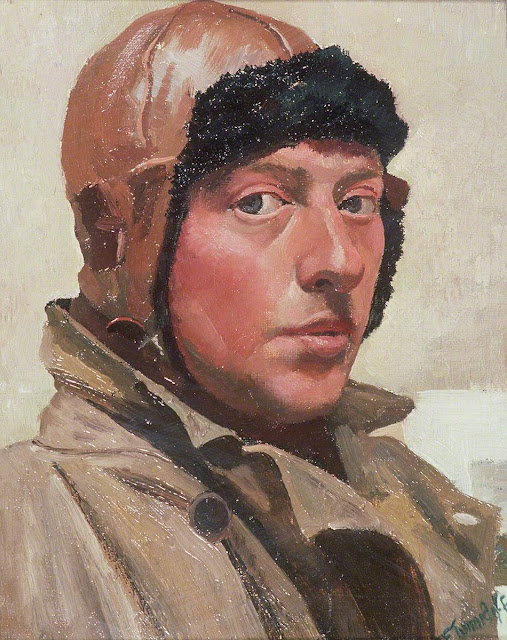 |
| Archibald McGlashan Self Portrait ca. 1910-20 oil on panel Kelvingrove Art Gallery and Museum, Glasgow |
 |
| Howard Somerville Self Portrait with Model ca. 1912 oil on canvas Mercer Art Gallery, Harrogate, Yorkshire |
 |
| George Clausen Self Portrait 1918 oil on canvas Fitzwilliam Museum, Cambridge |
 |
| Cedric Morris Self Portrait 1919 oil on canvas National Museum Cardiff (Wales) |
 |
| Mark Gertler Self Portrait 1920 oil on canvas Southbank Centre, London |
 |
| Charles Tunnicliffe Self Portrait ca. 1920 oil on canvas National Library of Wales, Aberystwyth |
 |
| Stanley Spencer Self Portrait 1923 oil on canvas Stanley Spencer Gallery, Cookham, Berkshire |
 |
| Edward Wolfe Self Portrait ca. 1925-30 oil on canvas Manchester Art Gallery |
 |
| William Oliphant Hutchison Self Portrait 1926 oil on canvas Kircaldy Galleries, Fife, Scotland |
 |
| John Lavery Self Portrait 1928 oil on canvas Ulster Museum, Belfast |
 |
| John Luke Self Portrait 1928 oil on canvas, mounted on panel Ulster Museum, Belfast |
 |
| William Rothenstein Self Portrait 1930 oil on canvas National Portrait Gallery, London |
 |
| Cedric Morris Self Portrait ca. 1930 oil on canvas National Portrait Gallery, London |
 |
| David Bomberg Self Portrait 1932 oil on board Ulster Museum, Belfast |
 |
| William Oliphant Hutchison The Kitchen Bathroom 1932 oil on canvas Kelvingrove Art Gallery and Museum, Glasgow |
Hutchison's 1932 self portrait, The Kitchen Bathroom, wittily deploys a compositional device traditionally associated with Baroque representations of church architecture (as below). The steeply receding architectural background in both cases is achieved through "plunging perspective" – often intended in the 16th and 17th centuries to force the wandering eye of the viewer toward the Host on the distant altar. Hutchison exploits this same plunging perspective to guide his viewer's eye toward the idealized nude, discreetly displayed in a deliberately unidealized setting.
 |
| attributed to Giovan Paolo Lomazzo Girl mounting Steps to Altar and opening Reliquary before 1600 drawing Royal Collection, Great Britain |